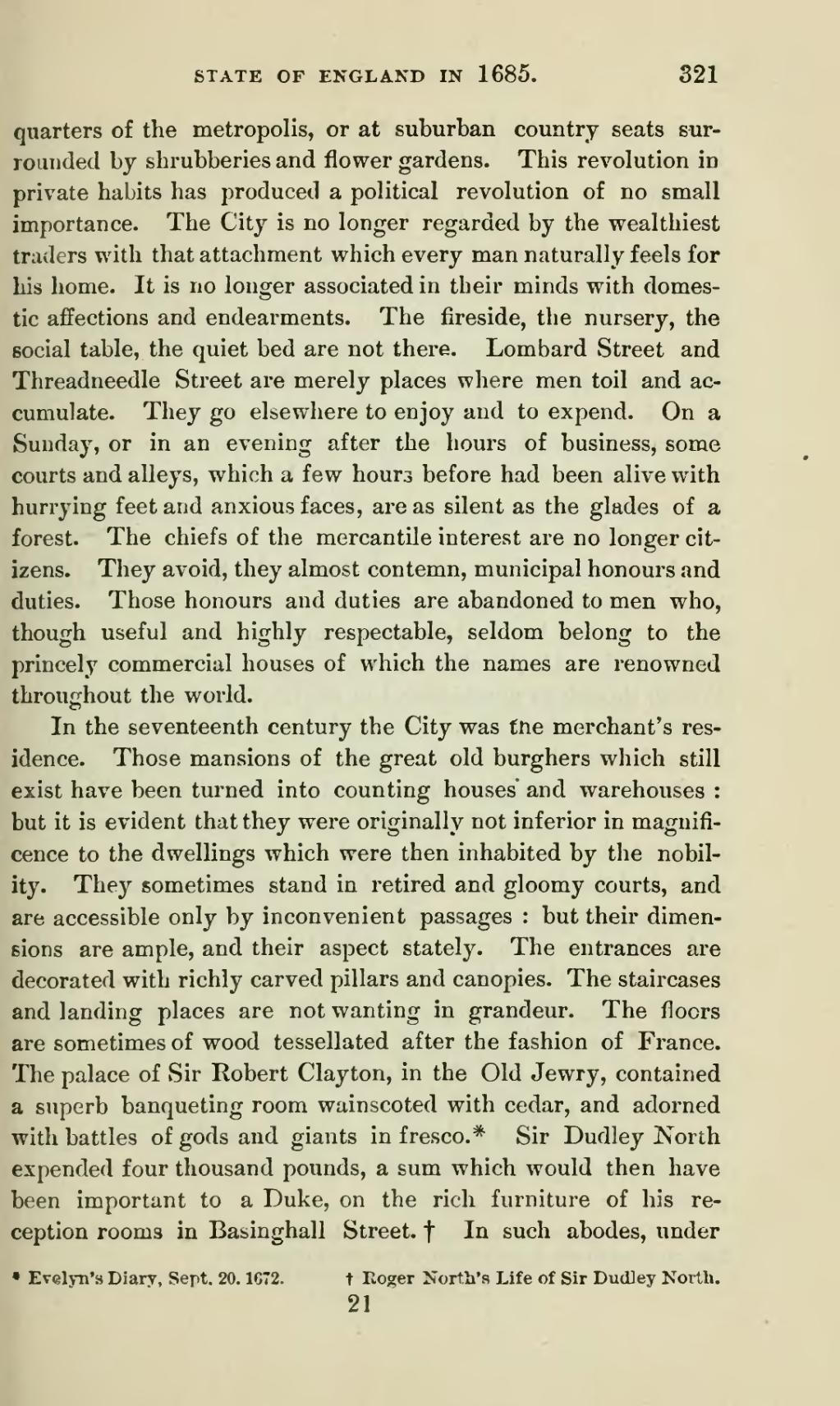quarters of the metropolis, or at suburban country seats surrounded by shrubberies and flower gardens. This revolution in private habits has produced a political revolution of no small importance. The City is no longer regarded by the wealthiest traders with that attachment which every man naturally feels for his home. It is no longer associated in their minds with domestic affections and endearments. The fireside, the nursery, the social table, the quiet bed are not there. Lombard Street and Threadneedle Street are merely places where men toil and accumulate. They go elsewhere to enjoy and to expend. On a Sunday, or in an evening after the hours of business, some courts and alleys, which a few hours before had been alive with hurrying feet and anxious faces, are as silent as the glades of a forest. The chiefs of the mercantile interest are no longer citizens. They avoid, they almost contemn, municipal honours and duties. Those honours and duties are abandoned to men who, though useful and highly respectable, seldom belong to the princely commercial houses of which the names are renowned throughout the world.
In the seventeenth century the City was the merchant's residence. Those mansions of the great old burghers which still exist have been turned into counting houses and warehouses: but it is evident that they were originally not inferior in magnificence to the dwellings which were then inhabited by the nobility. They sometimes stand in retired and gloomy courts, and are accessible only by inconvenient passages: but their dimensions are ample, and their aspect stately. The entrances are decorated with richly carved pillars and canopies. The staircases and landing places are not wanting in grandeur. The floors are sometimes of wood tessellated after the fashion of France. The palace of Sir Robert Clayton, in the Old Jewry, contained a superb banqueting room wainscoted with cedar, and adorned with battles of gods and giants in fresco.[1] Sir Dudley North expended four thousand pounds, a sum which would then have been important to a Duke, on the rich furniture of his reception rooms in Basinghall Street.[2] In such abodes, under
